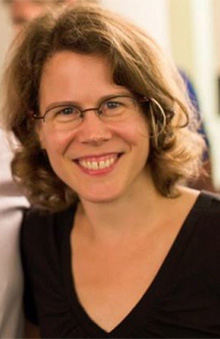Wallace Stevens and the Art of the Empty Mind: A Conversation with Amy Hungerford
Convening Yale
Wednesday, Mar 27 2019 at 11:45 am - 12:45 pm EDT
165 Whitney Avenue
New Haven, CT 06511
United States
Wallace Stevens, one of American Modernism’s greatest and most philosophical poets, sought to strip old beliefs away from the perceiving mind to create a new way of seeing the world. The result is a singularly ambitious form of poetry that claims—with a mixture of hubris and humility—to embrace all forms of human thought and making.
Amy Hungerford is the Bird White Housum Professor of English and dean of the humanities division at Yale. Her teaching and scholarship have focused on 20th- and 21st-century American literature; her books range across topics including genocide, religion, and the history of criticism. Her most recent book, Making Literature Now (Stanford, 2016), reveals the inner workings of contemporary publishing, as both an industry in which to make a living and an engine of literary fame. Her new research explores the socially saturated quality of modern solitude.
Convening Yale presents talks by faculty and leaders from throughout Yale University, who share their research and expertise and help students broaden their understanding of an increasingly complex world. The Convening Yale series is made possible through the generous support of the Robert J. Silver ’50 Fund for Innovation in Management Education.
The late poet Wallace Stevens made his living as an insurance company executive, but he’s best remembered for challenging the poetic traditions of his day, according to Amy Hungerford, the Bird White Housum Professor of English and dean of the humanities division at Yale.

In a talk on March 27 titled “Wallace Stevens and the Art of the Empty Mind,” Hungerford introduced Yale School of Management students to Stevens’ work and his place in modern literature. Hungerford spoke as part of the Convening Yale lecture series, which brings scholars from across the Yale campus to share their research with Yale SOM students.
One of American Modernism’s greatest and most philosophical poets, Stevens’ major awards include the Pulitzer Prize, National Book Award for Poetry, Bollingen Award, and the Robert Frost Medal.
Hungerford led students through several of Stevens’ best known poems, all taken from his debut 1923 collection, Harmonium. She used the text to highlight Stevens’ thematic concerns, as well as his innovative uses of syntax and structure.
Stevens rejected the “quasi-religious understanding of the world” embraced by the poets of the Romantic era—as exemplified in the work of John Keats—that superimposed notions of ideology and religion onto the natural world and human thought systems.
“Stevens felt shackled by all this,” Hungerford said. He wanted to know how to encounter the world without all this “preconceived baggage.”
“The poet’s job is to take materials, conventions, and history, and push against them to make something new,” Hungerford said. In his work, Stevens asked, “How can you free your mind to perceive the world in a fresh way?” Hungerford said.
Hungerford’s teaching and scholarship have focused on 20th- and 21st-century American literature, with books on genocide, religion, and the history of criticism.
Hungerford said that she hoped the Yale SOM students took from her talk a new appreciation for the creative thought processes and analysis that poets employ and the insights they yield: “Thinking within poetry is a powerful tool.”
